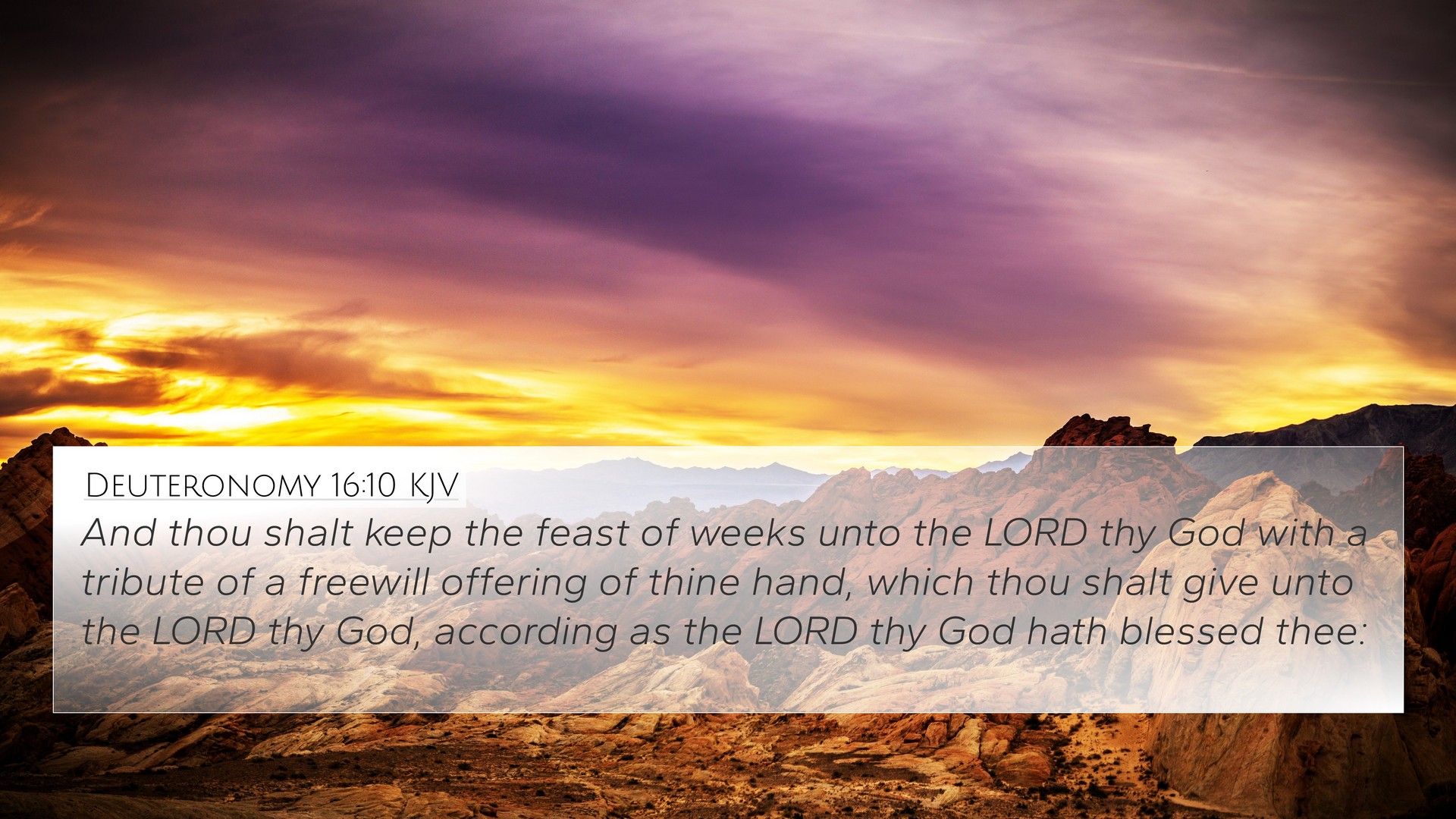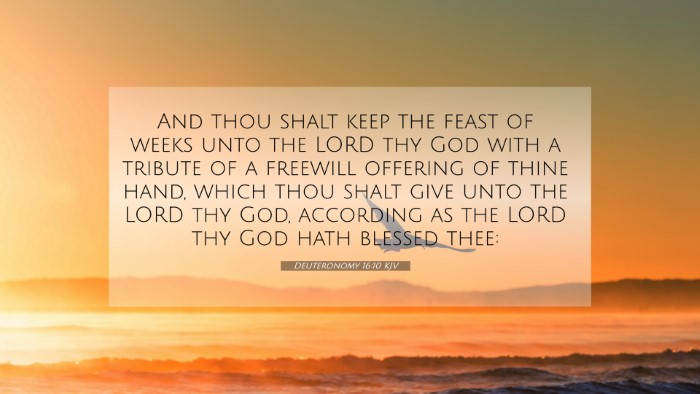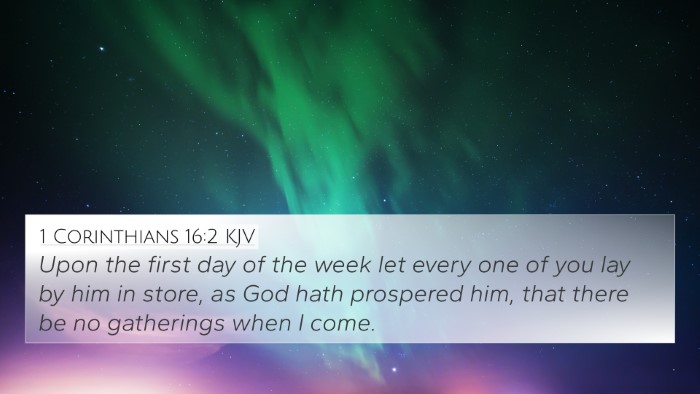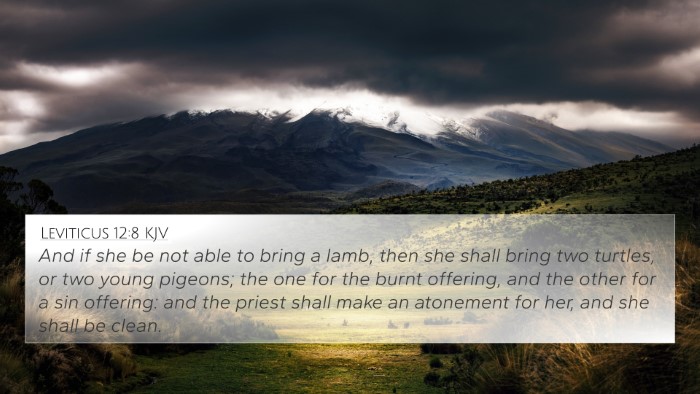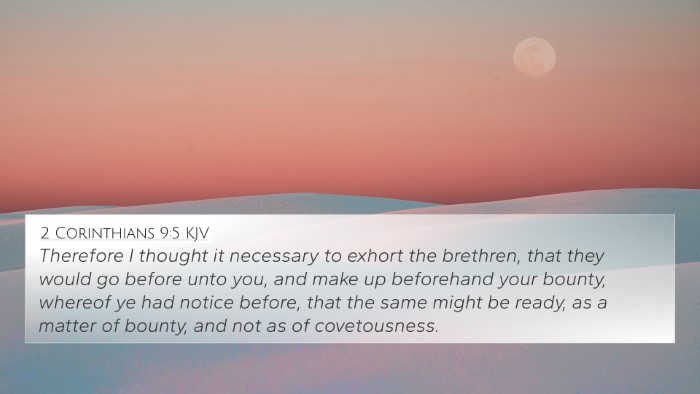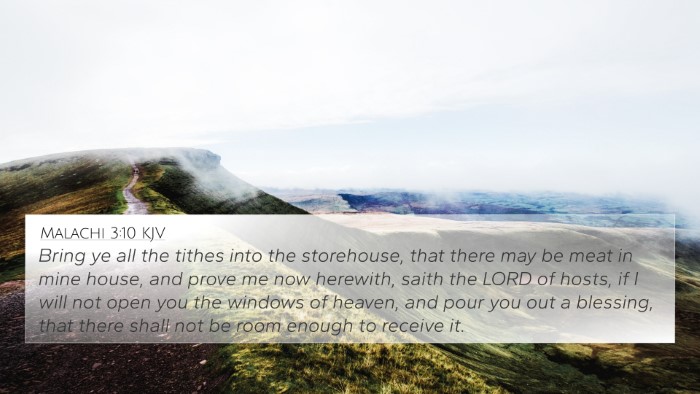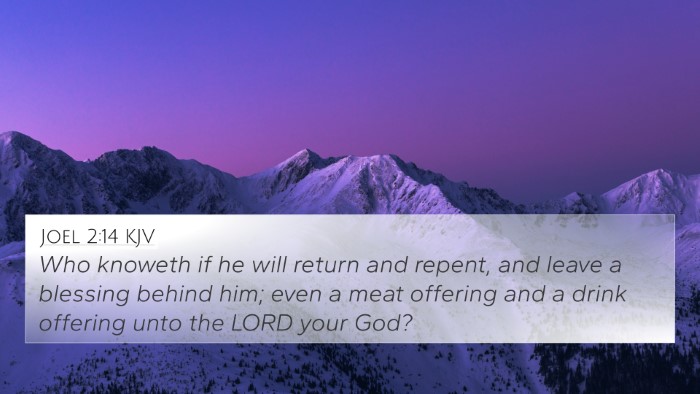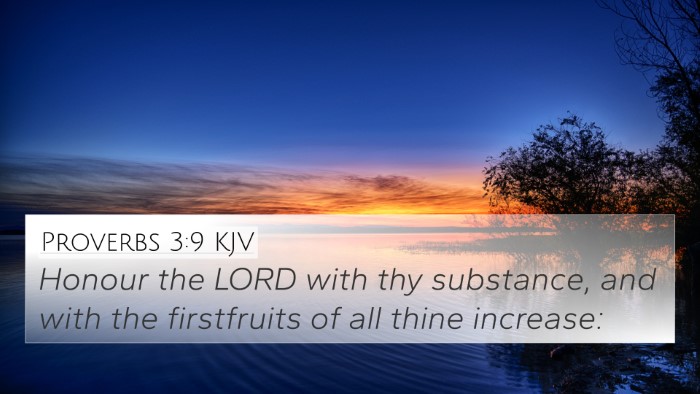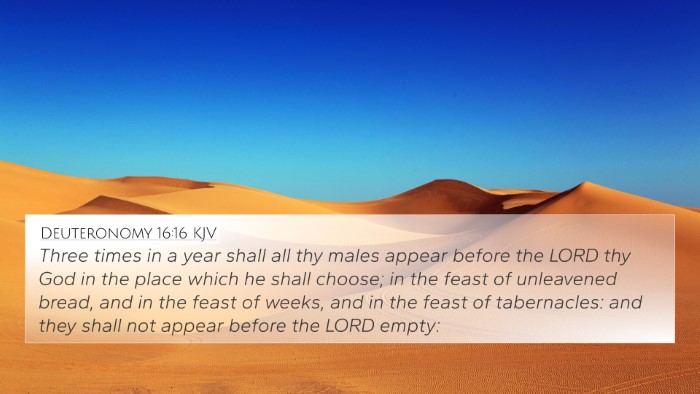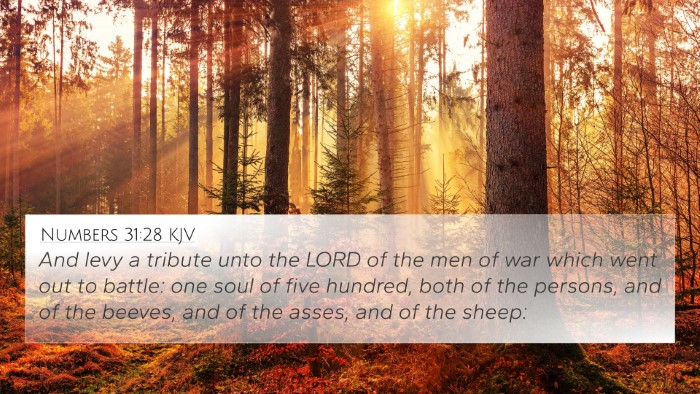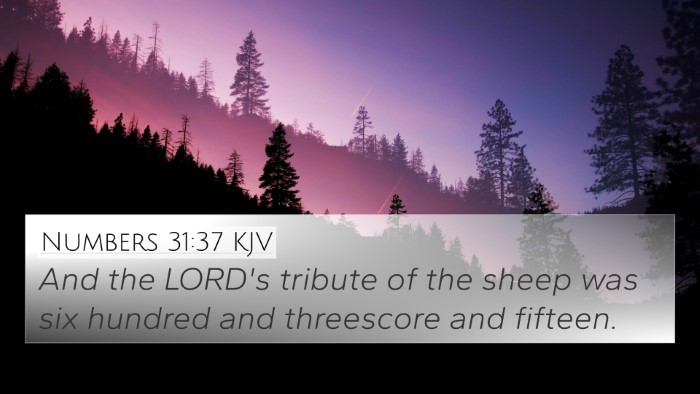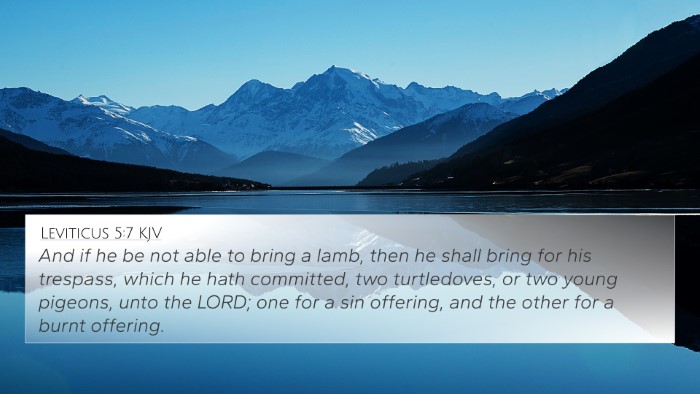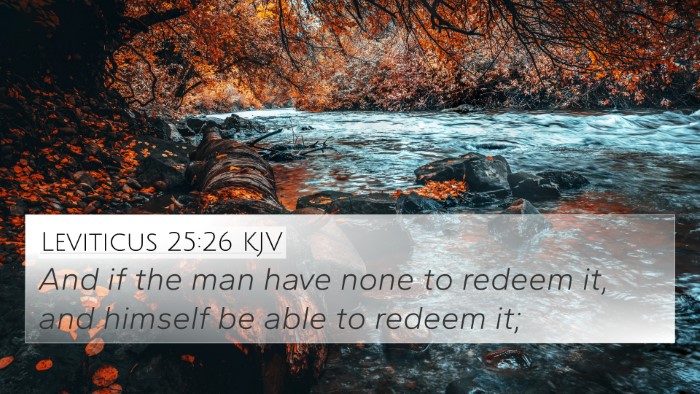Understanding Deuteronomy 16:10
Verse: "And you shall keep the Feast of Weeks to the Lord your God with the tribute of a freewill offering from your hand, which you shall give as the Lord your God blesses you."
Deuteronomy 16:10 emphasizes the importance of the Feast of Weeks (Shavuot) and the necessity of bringing offerings to God as an expression of gratitude and acknowledgment of His blessings. This verse captures the spirit of celebration and thanksgiving, central to the Israelite faith.
Commentary Insights
Matthew Henry's Commentary
Matthew Henry highlights that this particular festival celebrates the harvest and acknowledges God's providence. As harvest time was significant, the Israelites were to remember their blessings and respond with joyful giving as a form of worship. The freewill offering signifies not just obligation but a heartfelt response to God’s goodness.
Albert Barnes' Notes
Barnes elaborates on the spiritual significance of the Feast of Weeks, connecting it to the outpouring of the Spirit in the New Testament (Acts 2). He explains that this Festival marks the conclusion of the grain harvest and signifies joy and fellowship among the people. The emphasis on giving willingly underscores the relationship between divine blessing and human gratitude.
Adam Clarke's Commentary
Adam Clarke emphasizes the communal aspect of the Feast of Weeks. He notes that it fosters unity and gratitude among the people as they gather to present their offerings to God. Clarke points out that the pledge of offering from one's hand reflects personal involvement in worship, as well as the recognition that all gifts are from God, which should elicit a response of thankfulness.
Thematic Connections
This verse demonstrates overlapping themes prevalent throughout the Bible, such as gratitude, worship, and community. Here are some key cross-references that relate to Deuteronomy 16:10:
- Leviticus 23:15-21: This passage outlines the instructions and the significance of the Feast of Weeks.
- Exodus 34:22: This verse affirms the celebration of the Feast of Weeks as a time of harvesting and rejoicing.
- Acts 2:1-4: This New Testament account correlates the Feast of Weeks with the outpouring of the Holy Spirit, emphasizing transformation and empowerment.
- Philippians 4:15-19: This passage reflects the spirit of giving and receiving in the context of ministry and God's provision.
- 1 Chronicles 16:29: Commands to bring offerings to God in recognition of His greatness align with the themes present in Deuteronomy 16:10.
- Psalm 107:22: This psalm echoes the call to offer sacrifices of thanksgiving for God's deliverance and provision.
- 2 Corinthians 9:7: Reinforces the idea of cheerful giving, reflecting the principles of freewill offerings in the Old Testament.
Inter-Biblical Dialogue
Deuteronomy 16:10 not only encourages gratitude but invites readers to explore deeper connections between different passages of Scripture. The act of celebrating God's blessings is recurrent in the Bible, serving as a reminder of God's faithful provision in every believer's life. The connections between the Old Testament laws and New Testament practices illustrate the continuity of God's redemptive narrative.
Useful Tools for Cross-Referencing
Understanding the connections between Bible verses can enhance your study and interpretation. Here are some resources:
- Bible concordances to find words and themes across different books.
- Cross-reference guides that map relationships between Old and New Testament verses.
- Reference materials that help in comparative studies of Biblical texts.
Conclusion
Deuteronomy 16:10 serves as a pivotal verse that calls for joyful recognition of God's blessings through communal worship and offerings. By cross-referencing this verse with others, believers can deepen their understanding of God's covenant faithfulness and appreciate the rich tapestry of His word throughout Scripture.
